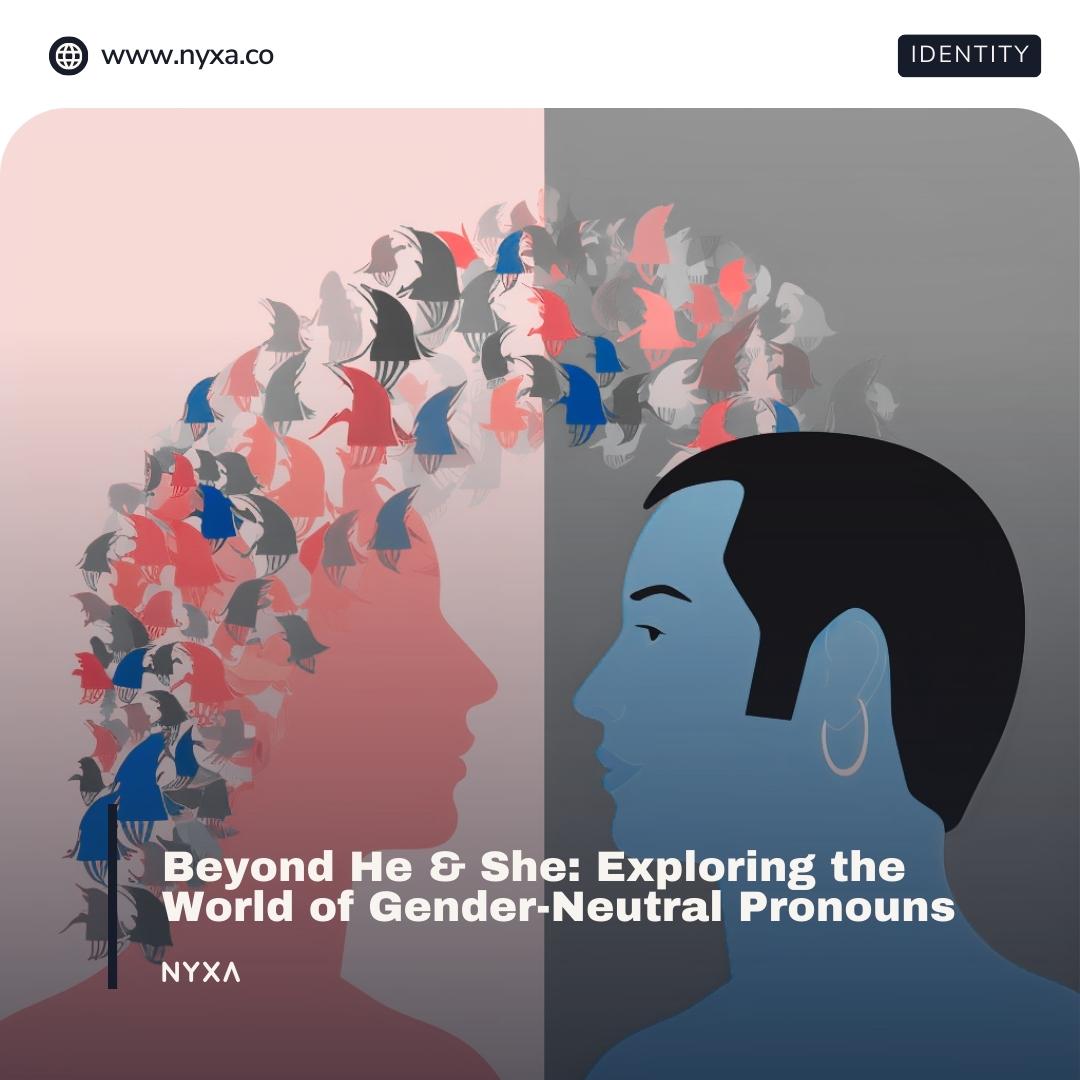
Beyond He & She: Exploring the World of Gender-Neutral Pronouns
Share
Gender-neutral pronouns are a part of the larger conversation around gender inclusivity. But what are they, and why are they gaining importance in our society? Let's dive into it.
Why Use Gender-Neutral Pronouns?
The increasing awareness of gender diversity calls for a language that reflects our diverse society. Gender-neutral pronouns are not new, but they're more relevant than ever.
- Importance in Modern Society
Is gender limited to just male or female? No, it's a spectrum. Using gender-neutral pronouns acknowledges this diversity and promotes a more inclusive culture.
- Inclusivity
Ever felt left out? Imagine being misgendered. Gender-neutral pronouns provide a way to communicate without making assumptions about someone's gender.
Common Types of Gender-Neutral Pronouns
There are several gender-neutral pronouns in use today, such as:
- "They"
They have long been used as a singular pronoun. Isn't it fascinating how a simple word can mean so much?
- "Ze"
A relatively new pronoun, "Ze" is gaining traction in some communities. Have you ever heard of it?
- Singular "They"
Different from the plural "They," singular "They" is an all-inclusive term.
Usage of Gender-Neutral Pronouns
How do we use these pronouns? Well, it's not as complicated as you might think!
- In Formal Writing
Many style guides now accept gender-neutral pronouns. Think of it as painting with a broader palette of colors!
- In Casual Conversation
Ever met someone and weren't sure of their gender? These pronouns can come to your rescue in everyday communication.
History of Gender-Neutral Pronouns
The history of gender-neutral pronouns is rich and intriguing.
- Origin
Guess what? They've been around since the 14th century! Old, but still very relevant.
- Evolution Over Time
From Shakespeare's works to modern literature, the use of gender-neutral pronouns has been quite a journey. Can you imagine a world without them?
Controversy and Gender-Neutral Pronouns
Not everyone is on board with these pronouns.
- Different Perspectives
While some see them as a way to be more inclusive, others might view them as unnecessary. But isn't embracing diversity what makes us human?
- Addressing Misconceptions
You might hear some myths about gender-neutral pronouns. Debunking these is key to understanding their importance.
Implementing Gender-Neutral Pronouns
How do you implement them in different scenarios?
- In the Workplace
It's a way of creating a welcoming environment. Simple, but powerful, right?
- In Educational Institutions
Teaching the use of gender-neutral pronouns can foster a culture of respect from a young age. Don't you think that's something worth investing in?
- In Personal Conversations
It starts with you! Yes, you can make a difference.
Challenges in Using Gender-Neutral Pronouns
Like any change, there are obstacles.
- Misunderstandings
Not everyone will understand at first. But patience is a virtue, isn't it?
- Resistance
Resistance to change is human nature. But don't you agree that growth happens outside our comfort zone?
Successes of Gender-Neutral Pronouns
These pronouns are making waves!
- Acceptance in Dictionaries
Now in prominent dictionaries, gender-neutral pronouns are more than just a trend. Isn't it wonderful to witness this acceptance?
- Use in Literature
Authors are embracing these pronouns, reflecting a broader spectrum of humanity. Feels like progress, doesn't it?
How to Start Using Gender-Neutral Pronouns
Want to start but don't know how? You're not alone.
- Educating Yourself
Knowledge is power. Equip yourself!
- Practicing
Just like learning a musical instrument, practice makes perfect.
- Being Patient
It's a learning process, not a race. Give yourself time!
Tips for Using Gender-Neutral Pronouns
Here are some final tips for you:
- Being Respectful
It's all about respecting others' identities. Simple as that!
- Asking People's Pronouns
When in doubt, ask. It shows you care.
- Correcting Mistakes
Mistakes happen. What matters is how you handle them. Ready to make a change?
Gender-neutral pronouns are more than just words; they represent a shift towards a more inclusive and compassionate society. Embracing them might seem like a small step, but it can make a huge difference in the lives of many. Ready to take that step?
